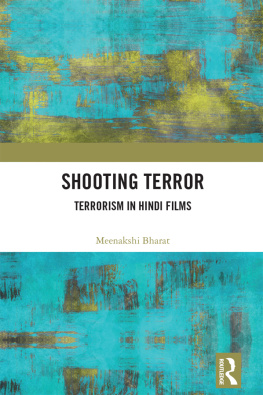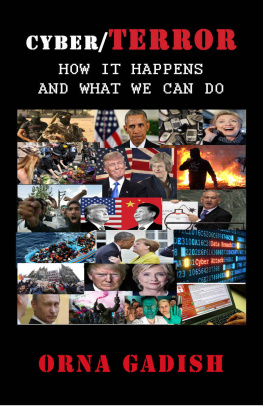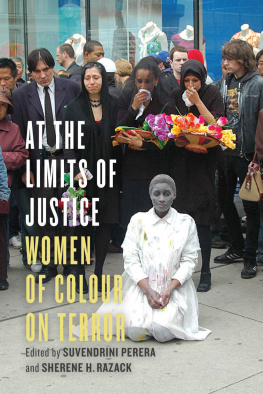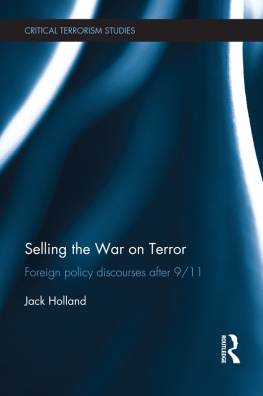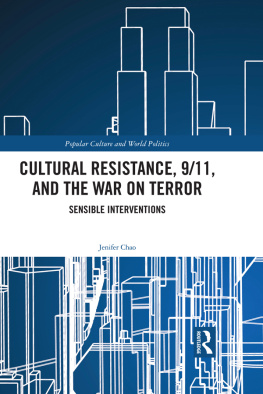Living Through Terror
In the era of war on terror, the term terror has tended to be applied to its sudden eruptions in the metropolises of the global north. This volume directs its attention to terrors manifestations in other locations and lives. The title Living Through Terror refers both to the pervasiveness of terror in societies where extreme violence and war constitute the everyday processes of life, as well as to the experience of surviving terror and living into the future. The contributions consider terrors effects in those ignored and silenced locations where terror is either naturalised (the Philippines, South Africa, Timor Leste, Sri Lanka, Chile, Fiji, India) or made invisible (the neo-liberal democracies of Australia and Italy). The stories of ruined places, displaced bodies and identities shattered and remade that emerge from these pages bring into view the socio-political systems, cultural geographies and regimes of territoriality through which terror is engendered and naturalised, and the institutions and imaginaries that continue to underpin them. The essays, literary writings and images collected here attend, in their different ways, to subjects living in and with terror as an element incorporated in their everyday, and to the processes by which terror exercises itself in their lives, whether it is perpetrated by state or non-state actors. Simultaneously, the contributions attest to the tactics subjects deploy to confront and negotiate conditions of terror, their attempts to live with and through terror and, ultimately, their strategies to recover through the everyday and the ordinary the seeds of life and hope.
This book was published as a special issue of Social Identities.
Suvendrini Perera is Associate Professor of Cultural Studies at Curtin University, Australia. Her most recent book is Australia and the Insular Imagination (NY: Palgrave 2009). She is the editor of Our Patch: Australian Post 2001 (Network 2008).
Antonio Traverso is Senior Lecturer in Film Studies at Curtin University and co-editor (with Mick Broderick) of Interrogating Trauma: Collective Suffering in Global Arts and Media (Routledge 2011) and Trauma, Media, Art: New Perspectives (Cambridge Scholars Publishing 2010).
Living Through Terror
(Post)Trauma, (Post)Conflict and the South
Edited by
Suvendrini Perera and Antonio Traverso
First published 2011
by Routledge
2 Park Square, Milton Park, Abingdon, Oxon, OX14 4RN
Simultaneously published in the USA and Canada
by Routledge
270 Madison Avenue, New York, NY 10016
Routledge is an imprint of the Taylor & Francis Group, an informa business
2011 Taylor & Francis
This book is a reproduction of Social Identities 15.1. The Publisher requests to those authors who may be citing this book to state, also, the bibliographical details of the special issue on which the book was based.
All rights reserved. No part of this book may be reprinted or reproduced or utilised in any form or by any electronic, mechanical, or other means, now known or hereafter invented, including photocopying and recording, or in any information storage or retrieval system, without permission in writing from the publishers.
British Library Cataloguing in Publication Data
A catalogue record for this book is available from the British Library
ISBN 13: 978-0-415-61447-4
Disclaimer
The publisher would like to make readers aware that the chapters in this book are referred to as articles as they had been in the special issue. The publisher accepts responsibility for any inconsistencies that may have arisen in the course of preparing this volume for print.
Contents
Pal Ahluwalia and Toby Miller |
Suvendrini Perera |
. |
Sivamohan Sumathy with Nazeera, Subaida, LathaKaushi, Nasrina, Felicia, Sharmila, Shiyana Madeena Umma, Saseetha, Thahiya, Vasuki and Juweriya |
. |
Jacqueline Aquino Siapno |
. |
Mohit Prasad |
. |
Romola Sanyal |
. |
Merlinda Bobis |
. |
Merlinda Bobis |
. |
Antonio Traverso |
. |
Joan Wardrop |
. |
Kristen Phillips |
. |
Joseph Pugliese |
In these first heady days after the November 2008 US election, one bizarre slogan stands out: Rednecks for Obama. Even weve had enough. The New York Times reported that this sign was seen emblazoned on a Confederate flag before the historic 2008 election. Something in the redneck slogan was telling. One simply cannot overestimate how powerful a symbol of bigotry that Confederate flag is, or how keen are the resentments felt by many white southerners against the levels of educational attainment and economic power represented by the coasts. So what does it mean to say Even weve had enough? After all, this is a nation of superstition, as per the Confederate legend. The vast majority of the population attests to the existence of a devil and individuated angels. Forty-five percent say aliens have visited Earth. Three times more people think there are ghosts than was the case a quarter of a century ago, and over a third avow that houses can be haunted. Eighty-four percent believe in the posthumous survival of the soul, up 24 percent on 1972. Only 25 percent subscribe to evolution, almost two-thirds anticipate millennial doom and rebirth, 55 percent are certain that Satan exists, 44 percent know there are demons (the same national proportion that has seen Mel Gibsons anti-Semitic paean to sadomasochism, The Passion of the Christ, where his screen and social identities of oleaginous businessman, vengeful messiah, anti-authoritarian larrikin, and right-wing real-estate magnate collided) and in the South, 44 percent say lightning is sent by god to punish wrongdoers. Forty-one percent are converts to fundamentalist evangelism across a bizarre array of groups, and 18 percent align with the religious right. The latter are the most skeptical people in the United States population about environmental protection. Apparently there is no future for the planet. Gods design is to destroy it and deliver true believers to safety in a kinky theological draft of wind (Miller, 2008). But the Republican Party does not serve these misguided souls, even though they represent its electoral core. The Party functions in the service of specific corporate interests: mineral extraction, real-estate speculation, health care [sic], pharmaceutical companies, and high finance. The country has been governed for almost a decade by people who are driven by their own class privilege, even as they deploy populist and anti-elitist rhetoric to capture straight, white, god-bothering xenophobic suburb- and exurbanites. So how have the rednecks, in whose name these financial and mineral elites operate, worked the fraud out? Perhaps it became clear to them that the store was being minded by incompetents. Consider the litany of idiocies, from warmongering to climate-change denial and disaster mismanagement. The Obama election represents, among other things, a return to policy mandarinism, to rationality, to accredited expertise, to Weberian bureaucracy.


